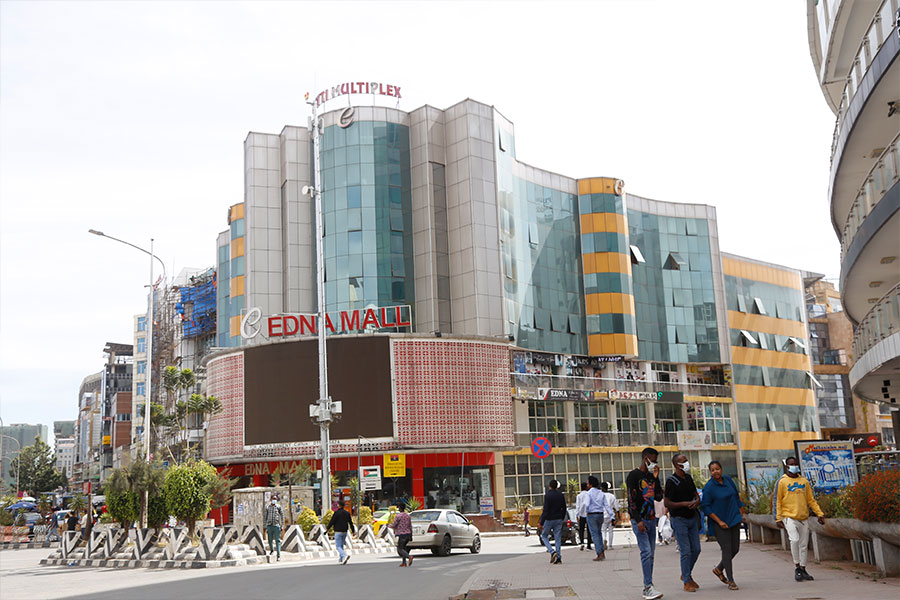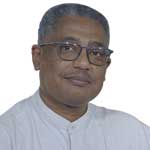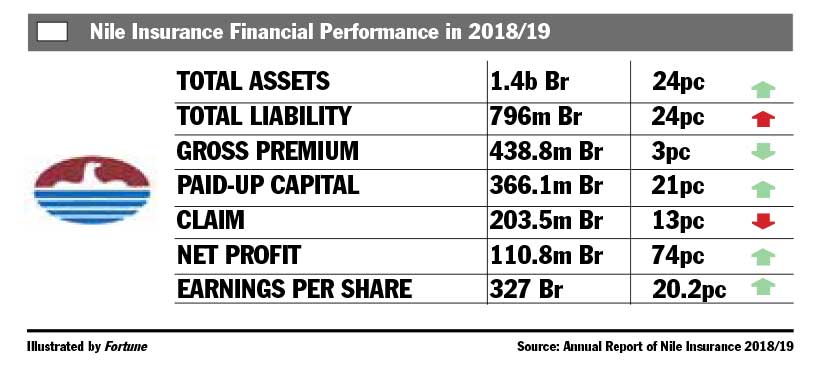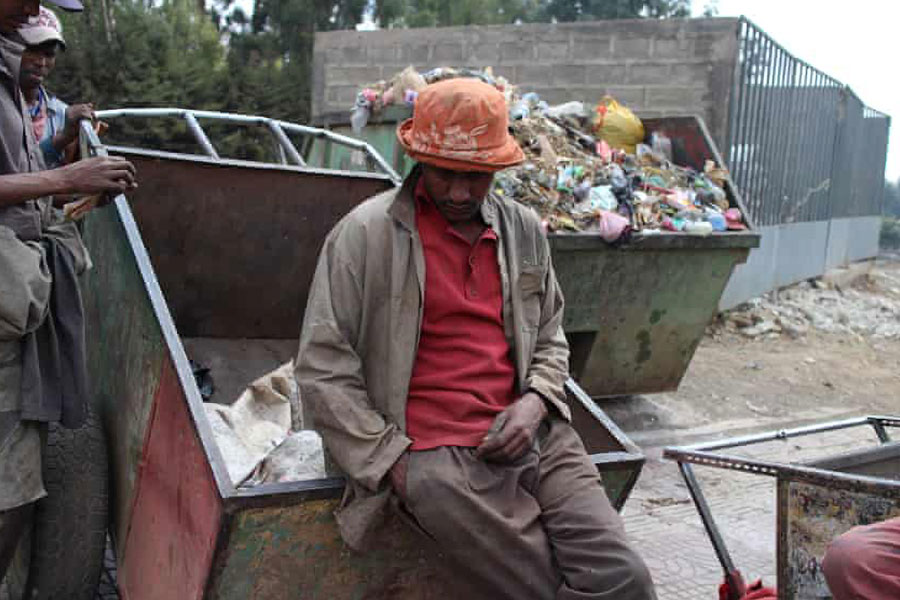
Fortune News | Dec 25,2021
Aug 17 , 2019
By Tibebu Bekele
This has been a turbulent week for the world economy. The US President Donald Trump announced via Twitter that his government would be adding a 10pc tariff to 300 billion dollars worth of Chinese goods. This is in addition to previous tariffs put on Chinese goods as part of the trade war between the two giants. Not surprisingly, China retaliated by devaluing its currency.
Soon after, the ripple effect went around the globe. Germany, which is a big exporter to China, led the adversely affected. Reports announcing downward trends in the UK and Sweden followed. Also, the slowing Chinese economy and political events in Hong Kong also contributed to the negative picture.
These events have led a significant number of economic forecasters to increase the odds of a recession hitting the world economy next year. The International Monetary Fund (IMF) released lower numbers of economic growth for this year. The IMF report cited the trade wars as harmful to the world economy and warned of the ripple effects impacting every corner of the globe. All this is injecting uncertainty into the markets. In the end, the action between only two countries, however big their economies, and decisions made by only a handful of people, however powerful, will affect the lives of billions of people all around the globe.
This goes to show how interrelated the world really is. Despite the rise of nationalistic rhetoric and the increased nationalistic fervour from the US to Europe to China, there is really no way of decoupling from the international marketplace. Whether they like it or not, countries are intertwined by mutual interests that in the long term tie all states’ destinies together.
The rise of nationalistic fervour and the desire to run away from challenging global problems is not new. In fact, the country that came out as a leader and the biggest winner in the Second World War, the United States, ironically did not want anything to do with it initially. In fact, its misguided effort to bury its head in the sand and try to avoid getting involved at any cost prolonged the war and increased the price paid by all.
The big lesson then was that the way human beings have evolved and technology has progressed meant that isolationism is practically impossible. Therefore, instead of retreating, the better answer is engagement under a carefully constructed international order.
Thus, the formation of the Bretton Woods institutions to rebuild the post-war economy and facilitate international economic cooperation on the one hand and the United Nations on the other to do the same on the political front.
That international architecture has served the world very well. There has been no world war for over 70 years yielding a relative peace dividend. There has been almost uninterrupted human progress in all measures of human development. This did not happen by accident.
It was the result of an underlying philosophy of liberalism that was based on the ideals of the brotherhood of man, the supremacy of the rule of law and collective security. It was premised on the faith that international trade with all its imperfections will bring the greatest benefits to the human race. And it has worked.
That does not mean there were no bumps on the road. There have been several challenges, but none like what we have faced since the financial crisis of 2008. The backlash at globalisation as a result of that crisis has given rise to populism and nationalism that is spreading mistrust in multilateral organisations and planting discord in the world.
This too has happened before. The first wave of globalisation was galloping full speed ahead until about 1914. The economic challenges of the time then panicked the US into passing a tariff act that kick-started retaliatory measures by the other major economic powers. That stalled the era of global trade and cooperation and ushered in an era of economic ruin that lasted for years, causing immense suffering. One can only hope that history does not repeat itself this time around.
PUBLISHED ON
Aug 17,2019 [ VOL
20 , NO
1007]


Fortune News | Dec 25,2021

Sunday with Eden | Oct 16,2020

Radar | Dec 10,2018

Fortune News | Dec 21,2019

Verbatim | Oct 27,2024

Fortune News | Oct 24,2020

Editorial | Mar 30,2019

My Opinion | Mar 26,2022

View From Arada | Oct 09,2021

Fortune News | Feb 16,2019

Photo Gallery | 174685 Views | May 06,2019

Photo Gallery | 164909 Views | Apr 26,2019

Photo Gallery | 155133 Views | Oct 06,2021

My Opinion | 136708 Views | Aug 14,2021
Editorial | Oct 11,2025

Dec 22 , 2024 . By TIZITA SHEWAFERAW
Charged with transforming colossal state-owned enterprises into modern and competitiv...

Aug 18 , 2024 . By AKSAH ITALO
Although predictable Yonas Zerihun's job in the ride-hailing service is not immune to...

Jul 28 , 2024 . By TIZITA SHEWAFERAW
Unhabitual, perhaps too many, Samuel Gebreyohannes, 38, used to occasionally enjoy a couple of beers at breakfast. However, he recently swit...

Jul 13 , 2024 . By AKSAH ITALO
Investors who rely on tractors, trucks, and field vehicles for commuting, transporting commodities, and f...

Oct 11 , 2025
Ladislas Farago, a roving Associated Press (AP) correspondent, arrived in Ethiopia in...

Oct 4 , 2025
Eyob Tekalegn (PhD) had been in the Governor's chair for only weeks when, on Septembe...

Sep 27 , 2025
Four years into an experiment with “shock therapy” in education, the national moo...

Sep 20 , 2025
Getachew Reda's return to the national stage was always going to stir attention. Once...

Oct 12 , 2025
Tomato prices in Addis Abeba have surged to unprecedented levels, with retail stands charging between 85 Br and 140 Br a kilo, nearly triple...

Oct 12 , 2025 . By BEZAWIT HULUAGER
A sweeping change in the vehicle licensing system has tilted the scales in favour of electric vehicle (EV...

A simmering dispute between the legal profession and the federal government is nearing a breaking point,...

Oct 12 , 2025 . By NAHOM AYELE
A violent storm that ripped through the flower belt of Bishoftu (Debreziet), 45Km east of the capital, in...